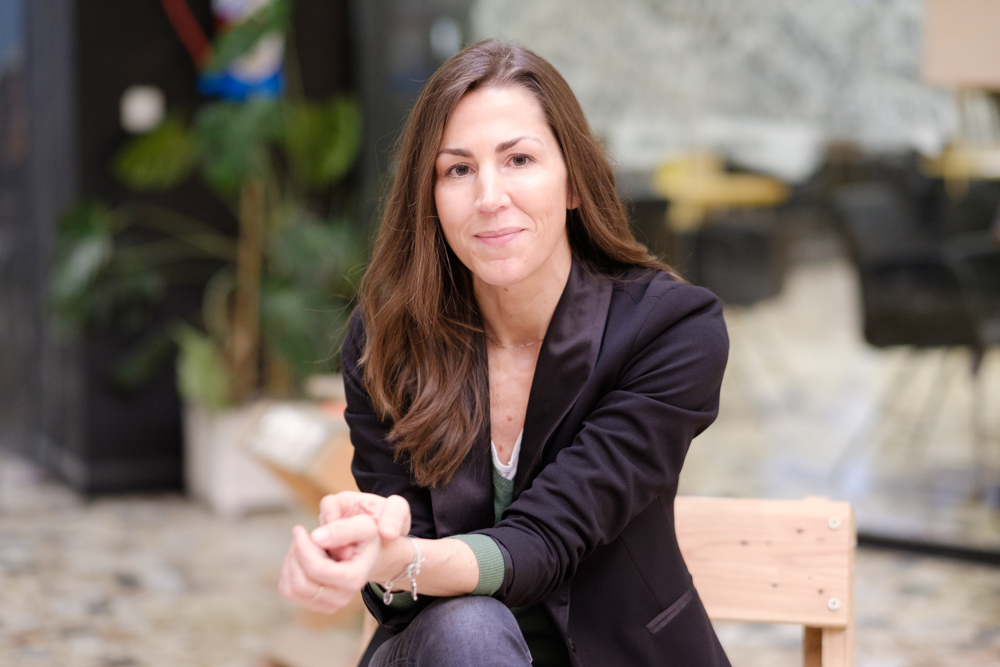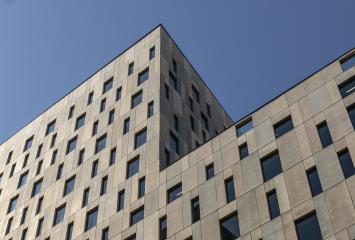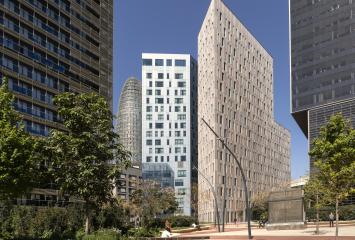The Knowmads and transforming offices
The term Knowmads is a neologism that combines the words know and nomads and defines the hyperconnected professionals who have a great tolerance for change and with very strong skills to transform their working environment and redefine the traditional office concept.
The Knowmads concept was coined by the labour market expert, John Moravec, to refer to the knowledge and innovation of nomad workers. For Raquel Roca, author of the Knowmads book, “it is not a fashion or a pop-up term that is invented but quickly dies out. What keeps it alive and will keep it that way over time is the richness of content and the amount of people behind it. “
Raquel Roca agreed to answer some questions on how these professionals will transform the design and configuration of current offices.
Studies show that by 2020 45% of the global workforce will be nomadic. How should the office of the future be in order to adapt itself to the Knowmads?
Indeed, the number of Knowmads (understood to be independent professionals) will increase significantly, but it is important to note that the appropriate approach to this concept is from a mentality perspective and not just a job profile. That is to say, that all workers, regardless of whether we are freelancers or contracted, need to acquire a mentality that allows us to fit better into the future world of work and improve our employability. Therefore, any organisation, even if it has contracted all its staff, also needs to redesign its office to adapt it to the new work environment.
We are breaking the paradigms of space and time, including more and more policies regarding flexibility, deferred work and the well-being of personnel, without neglecting the social impact. Therefore, the company of the future is also Knowmad: fluid, changing, open, collaborative, flexible and sustainable. It encourages employees’ self-management and freedom. There is mimicry with co-working spaces. For this, three factors must be taken into account: Spaces, Technology and People: and the company must also always refer to its aim during its transformation: What do I want to achieve and why?
The Knowmad office seeks the well-being of the professionals (it is a place where people want to be), thus encouraging their creativity which translates into innovation and productivity. The Knowmad office also:
1. Promotes collaborative work and networkarcy (to put an end to working in silos), breaking down offices and individual rooms in order to facilitate contact (social), communication (with open plan spaces for example) and sharing knowledge. But privacy and places to concentrate are maintained.
2. Encourages movement: from mobile furniture to flexible policies and teleworking. The office is alive and promotes a non-static organisation.
3. Encourages creativity (spaces to play and co-create are designed).
4. It is SMART and technological: technological tools for collaboration and deferred work, AI and integrated robotics.
5. Generates healthy areas: opts for “green” (for example with areas rich in oxygen) for eco-efficiency and ergonomics.
Does the traditional office concept fit into a Knowmads work environment?
No, it is impossible to attract and collaborate with this type of professional if the company is hierarchical in excess, does not enable open collaboration, is not well digitised, its spaces are grey and sad, the worker is controlled, or there are set schedules ...
In your blog, you define the Knowmad as a person that uses social networks to generate and spread their knowledge. Will the office be one of the places where the Knowmad could spread and expand their knowledge and establish networking platforms?
Without a doubt. The most evolved companies increasingly take into account, for example, social capital when hiring their employees. That is, they understand that their employees’ personal brand, network and social digital competences, have a great impact on the company itself. That is why more and more Employee Branding policies are adopted. Knowledge itself has no value if it is not shared.
Do you think that the incorporation of Knowmads into the workplace will change the configuration and design of current offices?
It is already occurring. Because companies need employees that are self-managing, collaborative, creative and have an entrepreneurial attitude, and we can only encourage that to happen in the right environment.
Lastly, what advice would you give companies that dare to leave their comfort zones and prepare for new ways of working that are more flexible and hyperconnected?
That they look at what is already happening around them, and that they trust their common sense but without forgetting Darwin: only those who adapt and evolve survive. What I do recommend is that they do not implement changes in a random way, but follow an appropriate strategy, and that they rely on professionals from the sector, both to work on technological solutions as well as on spaces and also work on the mindset and culture of people (resistance to change, acquire digital skills, improve creativity, activation of Personal Brand, learn to work in a deferred way, etc.).

Raquel Roca | Photographer: Migue Hernández

